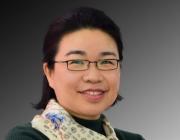摘要:
This chapter investigates China's recent higher education reform by developing applied education to addressing the issue of underemployment and unemployment of college graduates. Reviewing China's highly segmented labor market and the growth of flexible employment, we suggest that the negative effect of overeducation is mainly on those college graduates employed in the informal sector. Our analysis identifies a restructuring process of HE system aiming to break down the homogeneity among the elite and non-elite universities by making a dual process of differentiation. We conclude that it is difficult to achieve the ``parity of esteem'' between academic and applied education within a steeply stratified HE system and suggest that the relationship between HE system and cooperate employers deserves an in-depth investigation to turn around the fortunes of graduates from lower-tier universities.
Website
